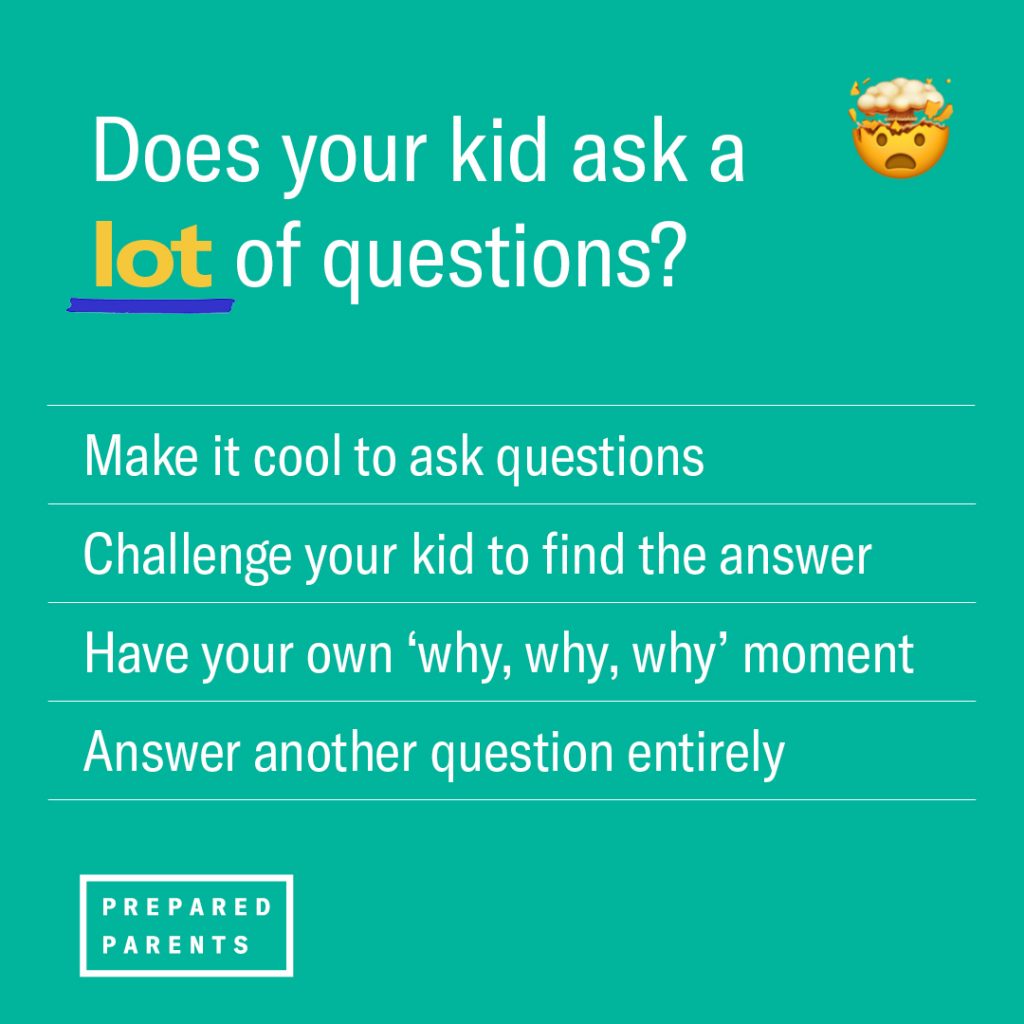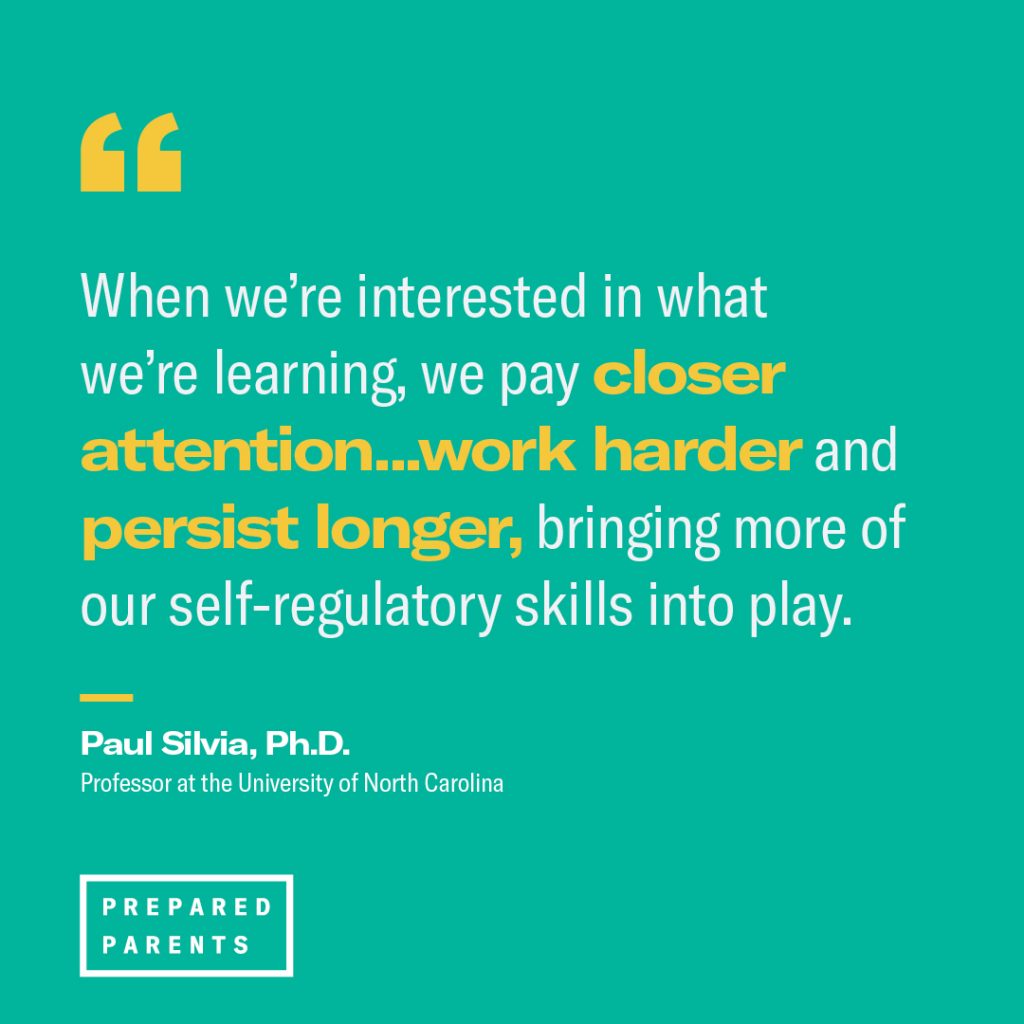Parents of toddlers are familiar with the “why, why, why” game—young kids are endlessly curious, and with every answer we give comes another question. Around and around we go, trying to answer the secrets of the cosmos and the meaning of life.

All learning begins with curiosity, and curiosity is only satisfied when questions are answered. And kids ask a lot of questions. In fact, between the ages of two and five, they ask an average of 40,000! While it may annoy us to constantly respond to their whys, when we do, we’re feeding their curiosity, and that’s a good thing.
Curiosity, it turns out, is really important for our kids’ development. Psychologists view curiosity as a life force, vital to happiness, intellectual growth, and wellbeing. It’s a good thing our kids ask so many questions then!
Learning scientists consider curiosity to be one of the top three most important habits (along with purpose and self-direction) our kids need to be successful in school and in life. Curiosity is the first step of your kid finding their interests, which can lead to finding purpose. It’s not about what they want to do for college or career, it’s about figuring out who they are, what they care about, and what impact they want to have on the world. It takes time, but through exposure and exploration, you can help your kid narrow down and pursue their deepest interests.

Take a deep breath, be grateful and proud your kid is a natural answer-seeker, and use the following tips to keep your sanity while nurturing your kid’s curiosity—and possibly deepening your inquiry skills, too. After all, asking “why” is a tool parents can also use to dig deeper with their kids.
Make it cool to ask questions
Kids stop asking so many questions around five or six years old, because they get adult feedback that questions aren’t welcome. With persistent questions, parents get frustrated, say they don’t have time, or tell their kid to stop asking so many questions. Kids hear the message loud and clear: No. More. Questions. So make it cool to continue to ask questions by actively pointing out that you are proud they’re so inquisitive. They’re learning an important skill for becoming a lifelong learner.
Challenge your kid to find the answer
Educators use inquiry-based learning as a classroom strategy to push kids to think deeply. Instead of answering their questions, they ask students to find their own answers. So when your kid asks why for the umpteenth time, turn the tables and challenge them to seek out the answer. Better yet, team up with them to find the answer together.
Solicit help from your friend Google, who puts a world of answers at your fingertips. If what you’re finding really excites your kid, it may be an opportunity to dig even deeper into an area that may be a burgeoning interest.
Have your own ‘why, why, why’ moment
Take a cue from your kid and brush up on your own inquiry skills, especially when it comes to questions you have about your kid. It’s a good way to dig deeper into who they are as a person and how you can support them as they continue to grow.
Answer another question entirely
Part of the frustration of hearing a thousand “whys” from your kid is realizing that as a full-grown adult, you don’t have all of the answers. Is there something wrong with me for not knowing why the sky is blue? you may wonder. Who would have thought our kids would have us questioning our own intelligence?
Pediatrician Dr. Alan Greene cautions parents to understand that by asking “why” kids are not necessarily asking “why: as adults understand the term, especially when it comes to younger kids with limited vocabulary.
Dr. Greene explains, “What they really mean is, ‘That’s interesting to me. Let’s talk about that together. Tell me more, please?’”
It’s an opportunity to engage in a conversation and a chance to show your kid they matter. Dr. Greene says, “My son was delighted with our interchange and I got an enthusiastic ‘cool,’ not another automatic ‘why?’ We both won.”

